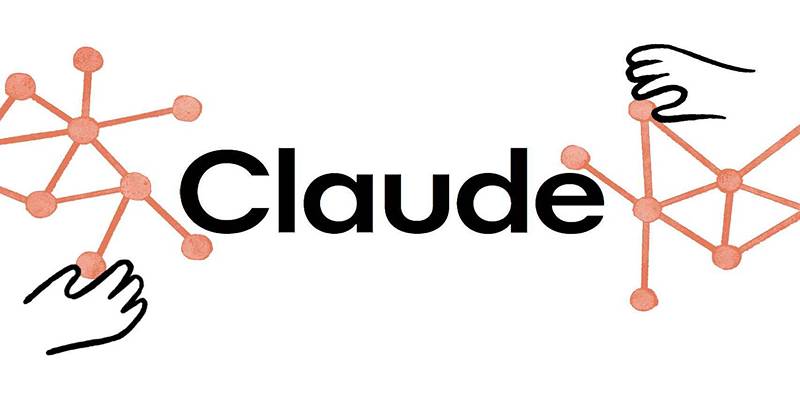Advertisement
Shopping online has become second nature for many, but it's still full of small annoyances — endless scrolling, too many choices, forgotten discounts, and clunky checkouts. Visa is introducing something new: AI shopping agents designed to make buying easier, smarter, and faster. These aren't just chatbots answering basic questions.
They learn what you like, find better deals, and even handle the checkout for you. By blending their payment expertise with artificial intelligence, Visa hopes to take the stress out of online shopping and turn it into a more personal, seamless experience that actually feels helpful instead of overwhelming.
The new AI shopping agents operate as personal assistants embedded within supported shopping apps or websites. Customers interact with the agent through a simple text or voice interface, asking it to find products, compare prices, or recommend items based on past purchases or stated preferences. For example, if you’ve often bought running shoes from a specific brand, the agent will prioritize showing similar or newer models when you shop again.

The AI behind these agents pulls from a combination of Visa’s secure transaction data and partner retail platforms. This lets it recognize patterns in consumer spending without exposing sensitive payment information. Shoppers don’t need to manually enter what they’ve bought before, since the agent can already see a broad picture of their habits and favorite stores. Over time, it adjusts to new tastes and budgets, suggesting alternatives if prices rise or better deals emerge.
Beyond suggesting items, the agents can guide users through the checkout process, filling in shipping information, applying available discounts, and confirming payment with one click. This eliminates the need for multiple steps and logins that many online shoppers find frustrating. Some implementations include delivery tracking, enabling consumers to type, "Where's my order?" and get an instant response.
For customers, the biggest draw is simplicity. Many shoppers today face choice overload, with hundreds of similar products to sift through and unclear reviews to read. Visa’s AI shopping agents narrow down the list to a few solid options that fit both style and budget, cutting through the clutter. They’re especially helpful when making repeat purchases or when shopping for hard-to-find items, as they remember past preferences.
Retailers stand to gain as well. The AI agents increase engagement by reducing abandoned shopping carts, since the checkout process becomes faster and less cumbersome. By surfacing the right products to the right customers, they also improve the chances of upselling complementary items or introducing customers to new products they might not have noticed on their own. Retailers partnering with Visa can even fine-tune their catalogs to better align with the agent's recommendations, creating a more seamless ecosystem.
Visa has taken care to ensure privacy controls remain clear and accessible. Shoppers can opt out of certain tracking features or limit the use of personal data to shape their suggestions. This addresses one of the main concerns people have about AI-driven shopping — the fear of being overly surveilled or manipulated by hidden algorithms.
The launch of AI shopping agents reflects a broader shift in Visa's approach to artificial intelligence. Over the past few years, Visa has been quietly expanding its AI capabilities, mostly behind the scenes. AI already plays a crucial role in fraud detection, transaction approval, and risk management, operating invisibly in the background to ensure secure payments. The shopping agents mark one of the first times Visa has put its AI directly into the hands of everyday consumers in such a visible way.

By embedding AI into the shopping experience, Visa positions itself not just as a payment processor but as a trusted shopping partner. This could deepen customer loyalty and open up new revenue streams beyond traditional card transactions. Retailers and banks working with Visa are closely watching the move, as it could pave the way for similar AI-driven tools that streamline other parts of the shopping journey, such as returns, customer service, and financial planning.
This step also keeps Visa competitive in a market where other tech companies, including Amazon and Google, are developing their own AI shopping assistants. However, Visa brings its payment expertise to the table, which sets it apart — its agents are not just helping you shop, they’re directly linked to how you pay and track your purchases securely.
As the technology rolls out more widely, Visa plans to expand the capabilities of its AI shopping agents. Features under development include deeper integration with social media shopping, the ability to create wishlists, and even tools for group shopping where the agent can help coordinate purchases among friends or family. Some retailers are testing versions that can recognize photos of items you’ve seen elsewhere and find the closest match in their store.
The early feedback from pilot programs has been encouraging, with many testers saying they felt less overwhelmed while shopping online. People who struggle with decision fatigue or who dislike spending time on price comparisons reported that the agents helped them feel more confident in their choices. Still, some shoppers remain cautious, preferring a more hands-on approach and worrying that AI will make decisions they'd rather make themselves.
Visa has stated that it's paying close attention to these concerns and plans to keep humans firmly in control, with agents acting as helpers rather than replacing personal decision-making.
Visa’s AI shopping agents signal a thoughtful shift in how technology supports everyday buying decisions. By simplifying searches, personalizing suggestions, and streamlining checkout, these assistants offer a more human-centered shopping experience without overwhelming users. They balance convenience with privacy, giving people control over their preferences while reducing the hassle of endless scrolling and form-filling. As shoppers grow more comfortable with AI’s role in their routines, this approach could reshape online commerce into something far more intuitive. Visa’s focus on making transactions smarter and simpler through AI marks an important step toward making shopping feel less like work and more seamless.

Learn how ChatGPT helps Dungeon Masters enhance gameplay, improvise scenes, and manage detailed campaign elements.

Install GPT4All on your Windows PC and run a ChatGPT-style AI chatbot offline, privately, and completely free of charge.

Explore 4 major reasons Claude AI performs better than ChatGPT, from context size to safety, coding, and task accuracy.

Learn how HR professionals can use ChatGPT to write emails, documents, and job posts faster and with less effort.

Google unveils the Veo video model on Vertex AI, delivering scalable real-time video analytics, AI-driven insights, and more

Learn how to integrate ChatGPT with WhatsApp to automate replies, streamline service, and boost customer engagement.

Learn how ChatGPT helps poets plan, write, edit, and structure poetry books while keeping their unique voices intact.

Discover 9 smart ways ChatGPT makes life easier by helping with tasks, decisions, planning, writing, and daily learning.

Explore how 10 top tech leaders view artificial intelligence, its impact, risks, and the future of innovation in AI.

Wondering how to tell if content was written by ChatGPT? Discover four reliable AI-checking tools designed to help teachers, lecturers, and team leaders identify AI-generated writing with ease

Learn how to install and use CodeGPT in Visual Studio Code to enhance coding efficiency and get AI-driven suggestions.

Worried about how ChatGPT handles your data? Learn how to stop your conversations from being used to train AI models and manage your privacy settings effectively